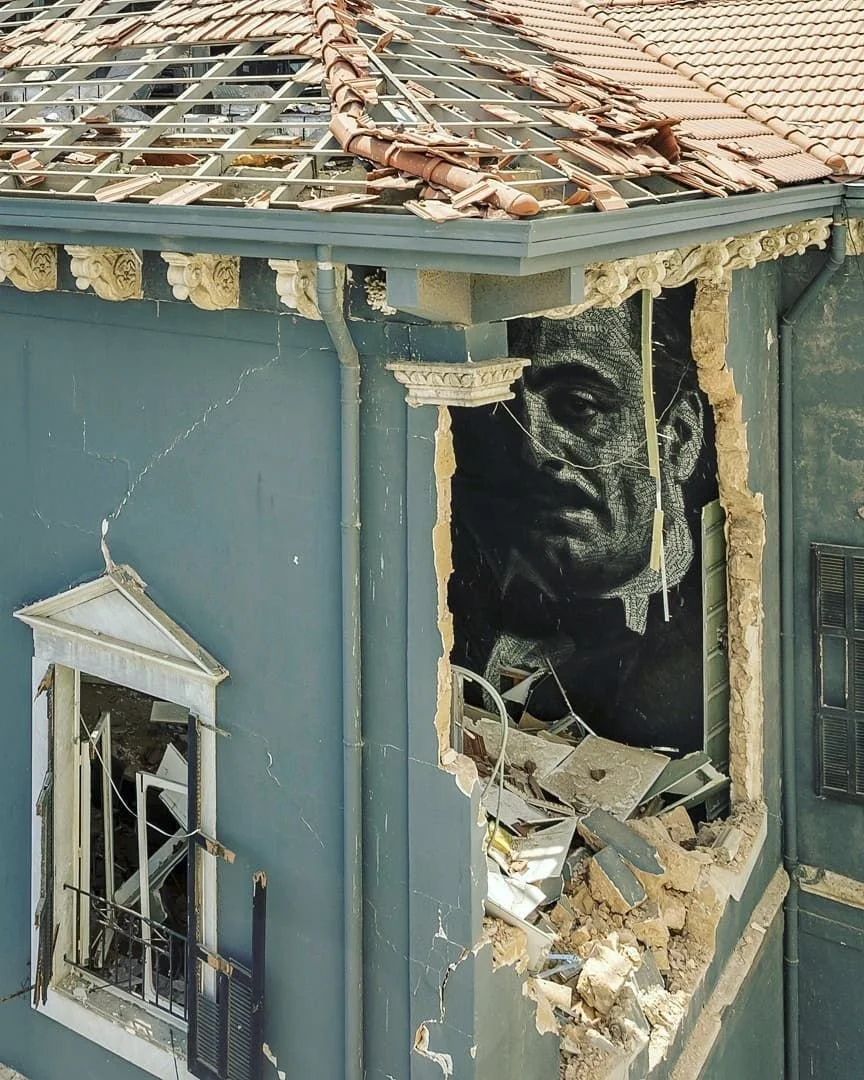Sumūd
Jana Younis
Auto-fictional Piece
02/14/25
The world is full of ghosts, and in Beirut, they walk the streets like they own them. They linger in the cracks of bullet-riddled buildings, in the way the air smells faintly of salt and smoke. History here isn’t read. It clings to your skin like sweat. Yet, for all its weight, it teaches us nothing. We repeat its mistakes with stubborn pride, as if to say, this is who we are.
But the city doesn’t care about pride. The city teaches you quick, like a street cat learns traffic. No second chances, no do-overs. You move, or you get buried under the rubble. I learned that lesson on August 4th, 2020, when the sky turned white, and the port spit fire at the shore — just like it did in ‘75, in ‘83, in ‘06. The details change, but the story stays the same.
I was at a bar in Gemmayzeh stacking bottles – cheap wine for the expats, arak for the old men– when it hit. First, a ripple, something swerving in the air, the kind of silence that makes your neck tingle and your ears ring. I had just set a bottle down when it happened. Shelves shattered, and glass rained down. The tremor knocked me off my feet. When I pulled myself up, everything was red and white—red from the blood, white from the dust.
When I adjusted my eyes to the scene, there was no shop. No door, no bottles, no walls. Just glass in my hair, blood on my hands. The streets were unrecognizable, faces gone slack with shock, mouths moving but no sound coming out. I thought I went deaf. A man stood by his car with a steering wheel in his blood-stained hands. A woman held a leash, but no dog.
I ran. Not because I knew where to go, but because the body moves when the mind won’t. The hospitals were full. The streets were fuller. People poured from broken buildings. Phones were dead. The power was gone. Silence. No sirens, no officers, no state. In those moments, we were not Lebanese factions or political slogans. In that silence where the government should have been, we became the rescue, the order, the law.
That night, I slept on a friend’s balcony. My house had no windows anymore. We lay on mattresses, staring at the sky. I thought of my grandfather, who told me stories of the war— the war he fought in, the war my father fled, the war embedded in my blood.
There is a word in Arabic, sumūd (صمود), it means bittersweet resilience. It describes the sense of enduring hardships with both pain and pride. It’s sumūd when a student keeps studying for an exam when there’s no electricity. It’s sumūd when the shopkeeper reopens with broken windows. I look at my country, and I see a broken place. I look at my people, and I see a miracle.
